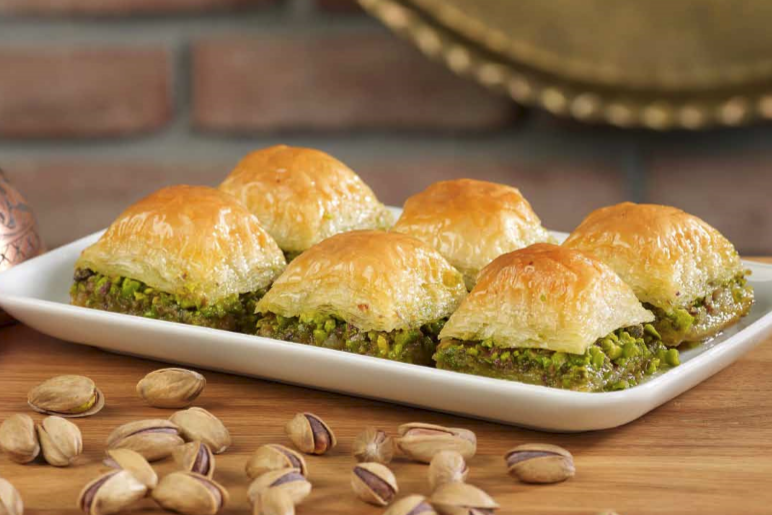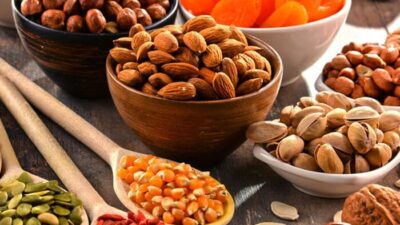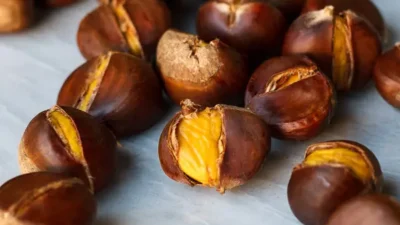Turkish Baklava — a legendary dessert that graces Middle Eastern tables with its exceptional flavor, telling the story of a rich civilization steeped in tradition and hospitality.
Let’s dive into the journey through the history and tales of this delicious treat:
Origin of Baklava:
It is believed that baklava originated in the Anatolian region of Turkey, where it was refined over the centuries in the Ottoman palace kitchens during the 15th century.
From there, it spread to other Middle Eastern and Balkan countries and is now considered an integral part of the cultural heritage of many nations.
Ingredients of Turkish Baklava:
Simple ingredients hiding behind them a world of rich flavors:
- Phyllo Dough: Thin layers of dough that form the foundation of baklava.
- Nuts:
- Pistachios: The most commonly used nut, giving baklava its distinctive green hue.
- Walnuts: Add a deep, rich flavor.
- Almonds: A delicious option for almond lovers.
- Syrup (Sharbat):
A blend of water, sugar, and lemon juice or honey, giving baklava its signature sweetness. - Butter or Clarified Butter (Ghee):
Used to brush between the layers of dough, providing its crispy texture.
Preparation Method:
A creative process composed of simple steps:
- Dough Preparation: Rolling the phyllo dough into ultra-thin sheets.
- Layering: Alternating layers of dough and sweetened nuts.
- Cutting: Cutting the baklava into even pieces before baking.
- Baking: Baking at moderate temperature until golden.
- Sweetening: Pouring hot syrup over the baklava as soon as it comes out of the oven.
Types of Turkish Baklava:
The flavors of baklava vary to satisfy all tastes:
- Pistachio Baklava: The most famous type, known for its green color and unique pistachio flavor.
- Walnut Baklava: Rich in both flavor and nutrition.
- Sütlüce Baklava (with Cream): Offers a uniquely sweet and creamy twist.
Serving Baklava:
A touch of beauty completes the amazing taste:
- Garnishing: Sprinkling crushed nuts or cinnamon on top.
- Pairing: Served with Turkish coffee or tea for a traditional experience.
Fascinating Facts About Turkish Baklava:
- Gaziantep City:
Known as the world capital of baklava, holding a geographical indication for its special baklava. - Baklava Festivals:
Annual festivals are held in Turkey to celebrate this delicious dessert and compete in creating the finest versions.
In Conclusion:
Turkish baklava is not just a dessert, but a symbol of hospitality, generosity, and a deeply rooted culture passed down through generations.
Enjoy the taste of this delicious dessert and discover its rich and flavorful history.




